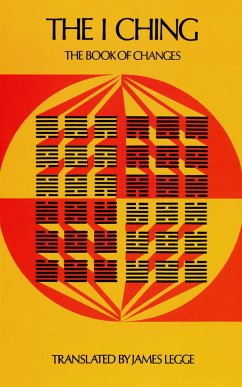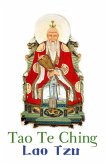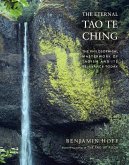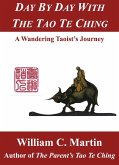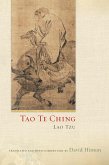One of the most important books in the history of Oriental culture is the I Ching, or as it is usually called in English, the Book of Changes. Its basic text seems to have been prepared before 1,000 B.C., in the last days of the Shang Dynasty and the first part of the Chou Dynasty. It was one of the Five Classics edited by Confucius, who is reported to have wished he had fifty more years of life to study it. Since the time of Confucius it has never lost its enormous significance; it has been used by Confucianists and Taoists alike, by learned literary scholars and street shamans, by the official state cult and by private individuals.
Basically, the I Ching is a manual of divination, founded upon what modern scholars like Wolfgang Pauli, the Nobel Laureate physicist and C. G. Jung, the psychoanalyst, have called the synchronistic concept of the universe. This means that all things happening at a certain time have certain characteristic features which can be isolated, so that in addition to vertical causality, one may also have horizontal linkages. According to tradition, King Wan and his son the Duke of Chou spent their lives analyzing the results of divination in terms of interacting polar forces and six-variable hexagrams, correlating an observed body of events with predictions. Whether this account is true or not, the I Ching still retains its primacy in Chinese thought.
Apart from its enormous value in Oriental studies, the I Ching is very important in the history of religions, history of philosophy, and even in certain aspects of modern Western thought. It is one of the very few divination manuals that have survived into modern times, and it is typologically interesting as perhaps the most developed, most elaborate system that is known in detail. In philosophy, it marks a stage in the development of human thought, while the I Ching has recently become very important in the understanding of certain cultural developments in the Western world.
This present work is the standard English translation by the great Sinologist James Legge, prepared for the Sacred Books of the East series. It contains the basic text attributed to King Wan and the Duke of Chou, the ten appendices usually attributed to Confucius, a profound introduction by Legge, and exhaustive footnotes explaining the text for a Western reader.
Basically, the I Ching is a manual of divination, founded upon what modern scholars like Wolfgang Pauli, the Nobel Laureate physicist and C. G. Jung, the psychoanalyst, have called the synchronistic concept of the universe. This means that all things happening at a certain time have certain characteristic features which can be isolated, so that in addition to vertical causality, one may also have horizontal linkages. According to tradition, King Wan and his son the Duke of Chou spent their lives analyzing the results of divination in terms of interacting polar forces and six-variable hexagrams, correlating an observed body of events with predictions. Whether this account is true or not, the I Ching still retains its primacy in Chinese thought.
Apart from its enormous value in Oriental studies, the I Ching is very important in the history of religions, history of philosophy, and even in certain aspects of modern Western thought. It is one of the very few divination manuals that have survived into modern times, and it is typologically interesting as perhaps the most developed, most elaborate system that is known in detail. In philosophy, it marks a stage in the development of human thought, while the I Ching has recently become very important in the understanding of certain cultural developments in the Western world.
This present work is the standard English translation by the great Sinologist James Legge, prepared for the Sacred Books of the East series. It contains the basic text attributed to King Wan and the Duke of Chou, the ten appendices usually attributed to Confucius, a profound introduction by Legge, and exhaustive footnotes explaining the text for a Western reader.
Dieser Download kann aus rechtlichen Gründen nur mit Rechnungsadresse in A, D ausgeliefert werden.

